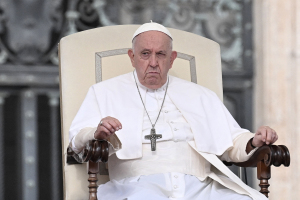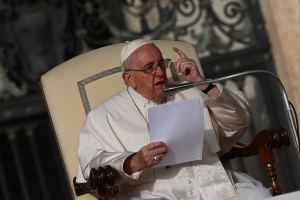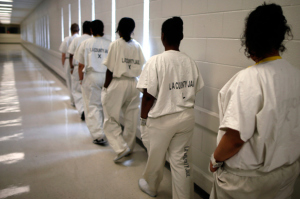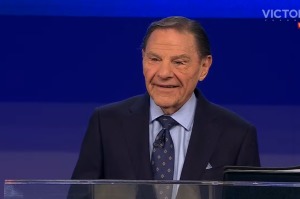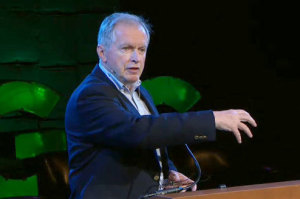Did Ted Cruz Deliberately Upend Middle East Christian Summit With Pro-Israel Speech?
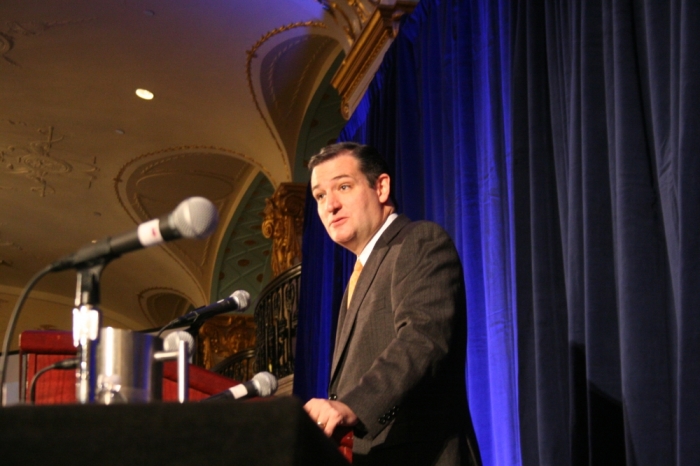
A number of news outlets, including conservative ones, are charging Senator Ted Cruz, R-Texas, with deliberately upsetting Middle East Christians gathered at the inaugural summit of In Defense of Christians in Washington, D.C., last Wednesday, with some calling it a political stunt.
BuzzFeed asserted that Cruz delivered a pro-Israel speech despite having prior knowledge that there were Palestinian Christians in the audience who may have relationships with Hezbollah. Cruz was booed offstage for asserting that Israel is an ally of Christians.
"According to a conservative political operative who is close to the incident, Cruz's team found out about the alleged links between the Lebanese Shiite terrorist group Hezbollah and some of the event's speakers on Tuesday evening, the night before he was scheduled to speak," said BuzzFeed.
While the In Defense of Christians summit was organized to bring together Christians of every sect and denomination in the Middle East to stand in solidarity with their persecuted brethren, according to conservative Jonathan Coppage in The American Conservative, "Ted Cruz, however, fractured that unity" with his pro-Israel speech.
"When Cruz took the stage, however, after two days of declarations of Christian unity and recognition of the widespread persecution of peoples of all faiths, his remarks emphasized his devotion to the state of Israel," said Coppage.
According to Mollie Hemmingway in The Federalist: "When Cruz was supposed to give the keynote address and discuss the deadly serious topic of persecution of Christians, he instead insulted a largely immigrant and foreign crowd as a group that didn't understand their own political situation and stomped out of the room after calling them a bunch of haters."
In an op-ed published in The Week, conservative writer Pascal-Emmanuel Gobry said Cruz "indulged in what might be the most cynical and despicable political stunt of the year." He speculated that perhaps he did it to pander to "fundamentalist Christians who do not believe that Middle East Christians are 'real' Christians" but decidedly labelled it as foul.
"Now, I am no Ted Cruz antagonist. I am a supporter of the Tea Party — it's done, on the whole, a world of good for the Republican Party by reinvigorating it and strengthening it. I even supported Cruz's push to shut down the government to stop ObamaCare implementation. And I am also a full-throated supporter of Israel," wrote Gobry.
"But let's be clear about what Cruz was doing in D.C.: using one of the world's most beleaguered minorities as a prop for his own self-aggrandizement," he noted. "Cruz tarred and attacked one of the most powerless and beleaguered minorities in the world, solely for personal political gain. He was speaking truth to the powerless. He was strong against the weak."
And what Cruz did according to Gobry, was decidedly foul because of the complexities of Christian life in the Middle East.
"Keep in mind that many Christians in the Middle East are ethnic Arabs who live under Israel's occupation of the West Bank, and therefore have negative feelings about Israel. Of course, there are also many Middle East Christians who are supporters of Israel (indeed, there are even Arab Christians who serve, with distinction, in the Israeli Defense Forces)," wrote Gobry.
Hemmingway agreed that these complexities should have been taken into consideration by Cruz.
"The real problem, of course, is just the messiness of the situation in the Middle East vis-a-vis foreign policy interests and religious persecution. Is Syrian President Bashar al-Assad the enemy or a friend? The United States considers him an enemy … But Christians in the region view him differently because his regime is fighting the guys who are killing them and seeking their eradication," she explained.
















